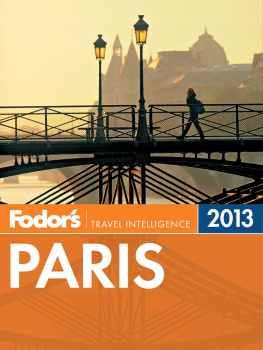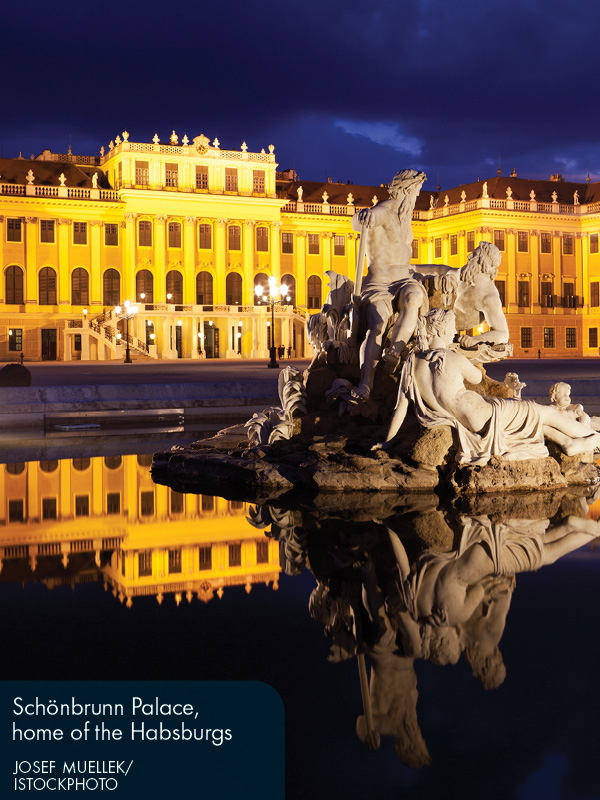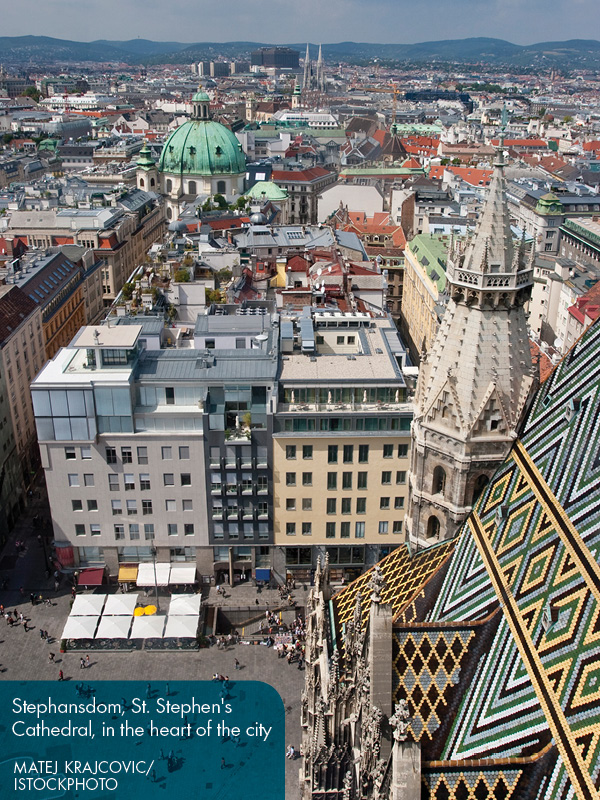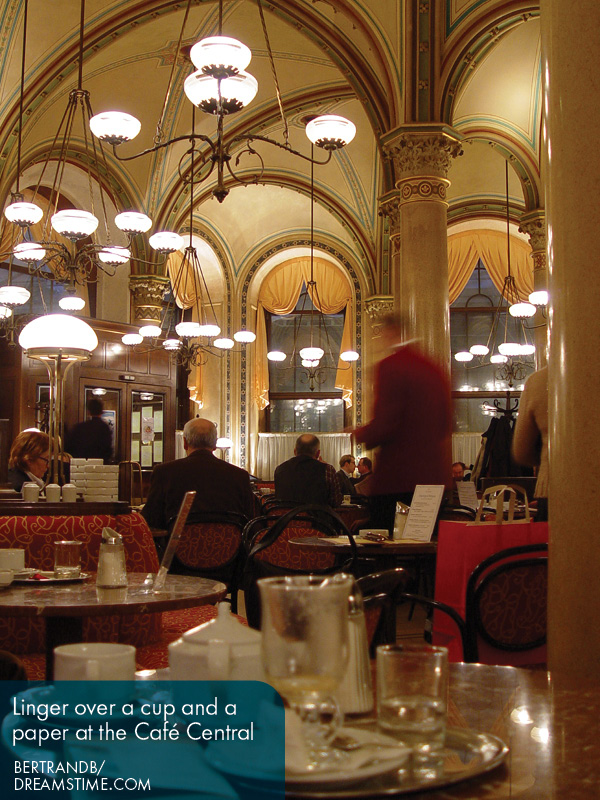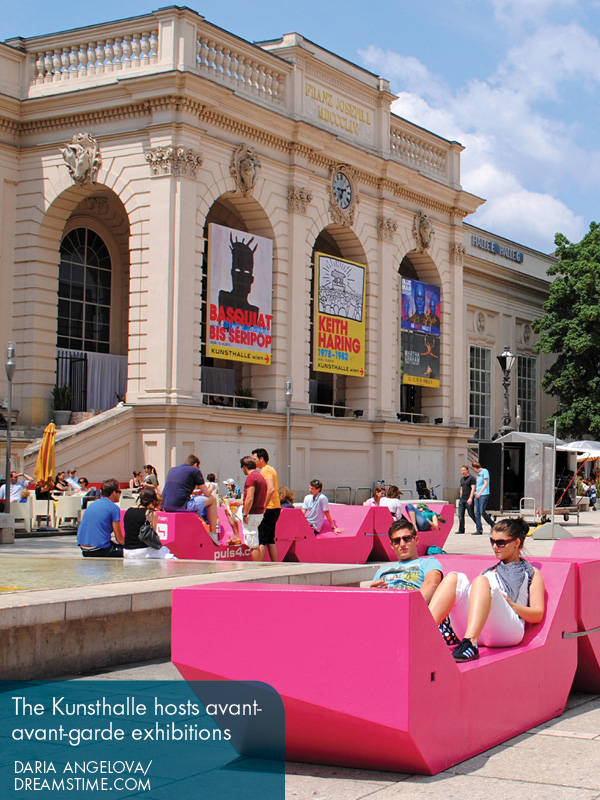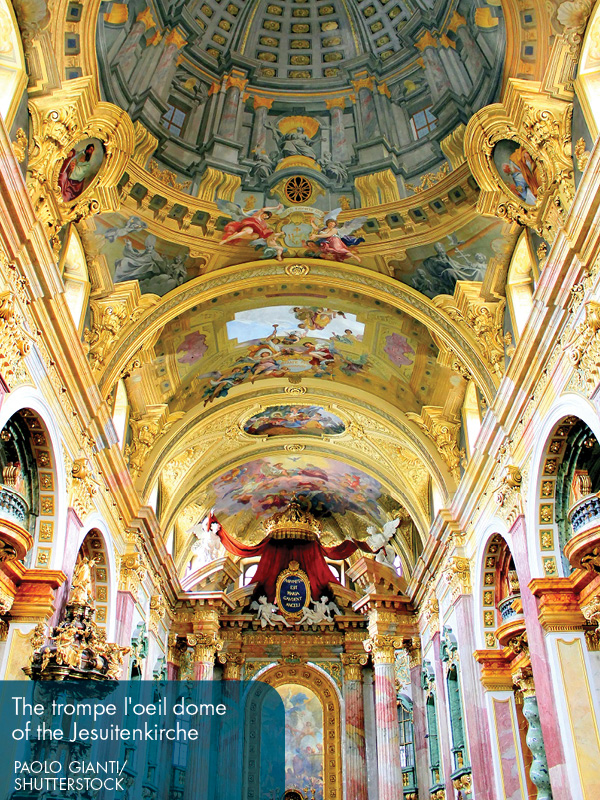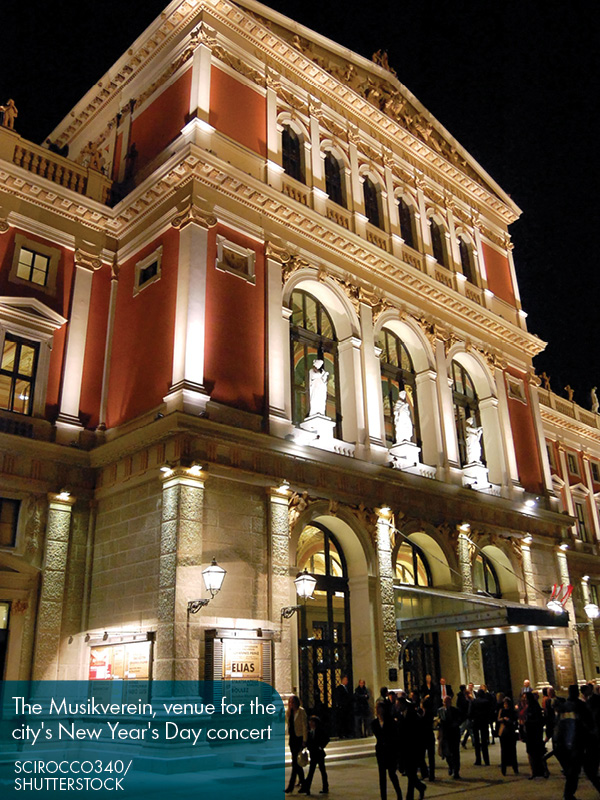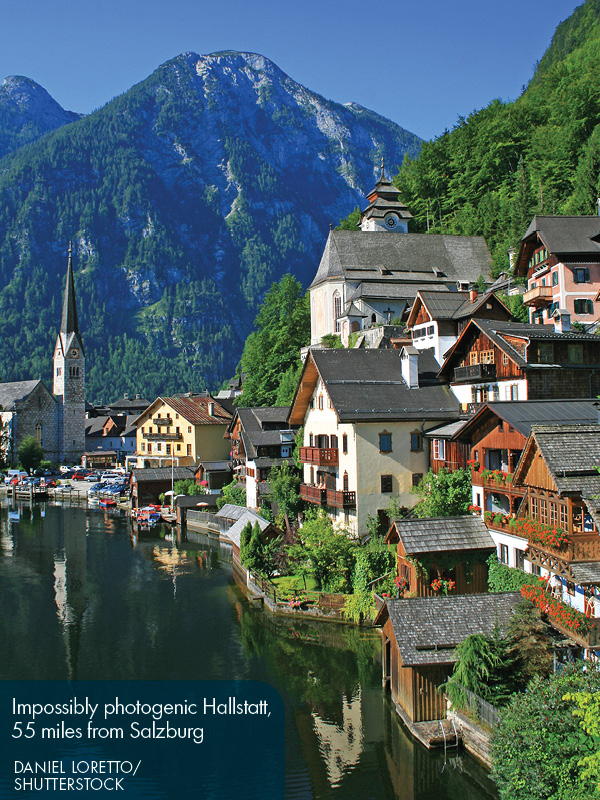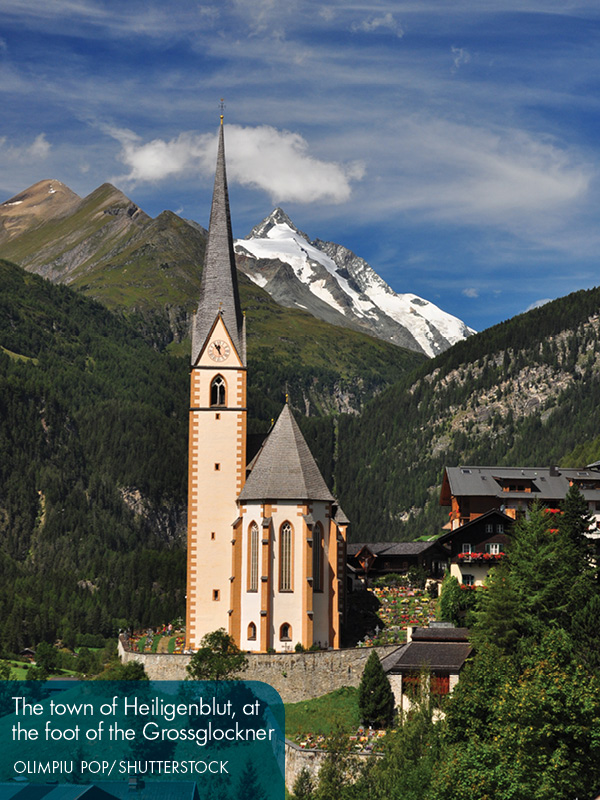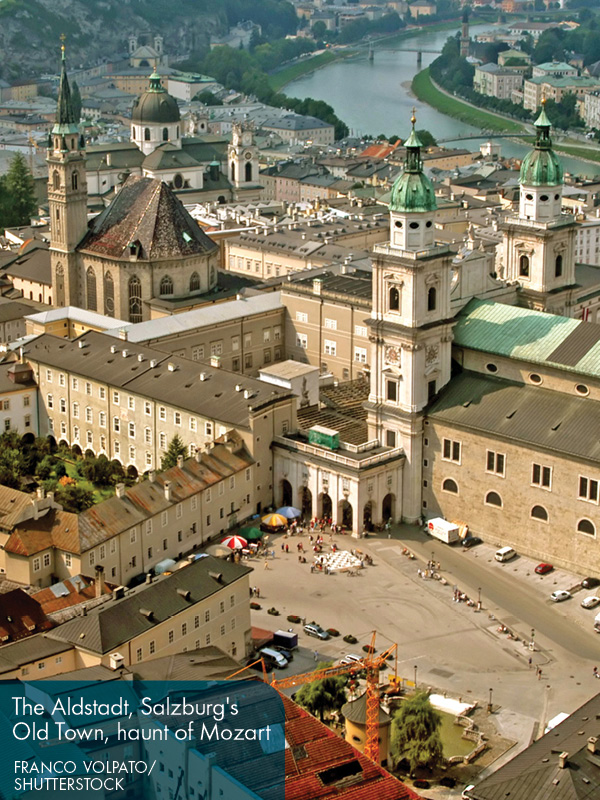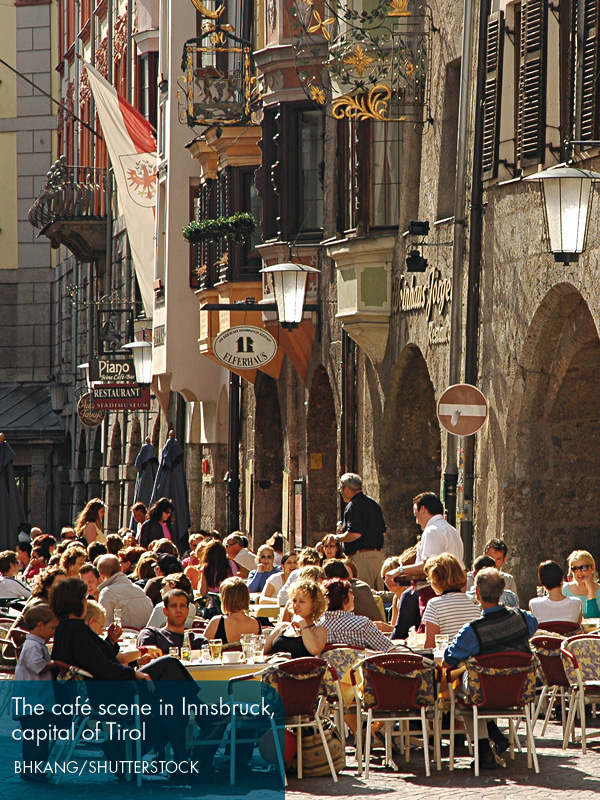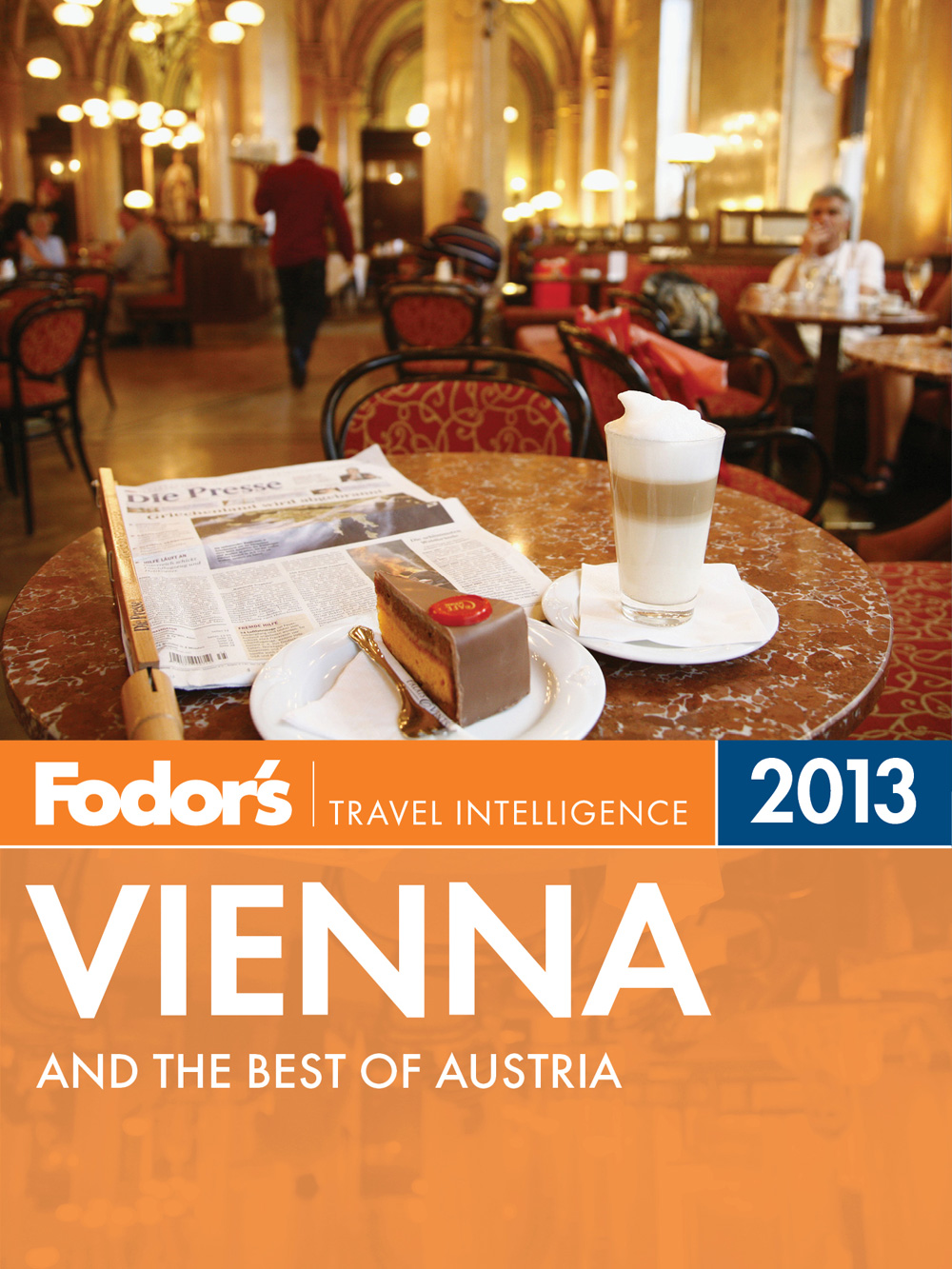
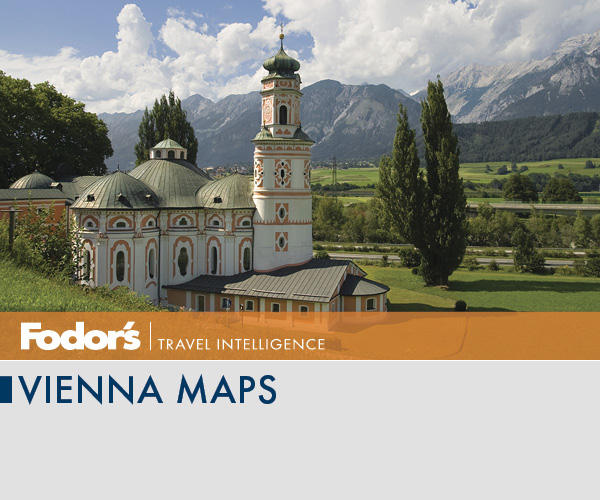
Exploring Vienna
Vienna Woods, Lake Neusideler, and the Danube River
Salzburg
Eastern Alps
Salzkammergut
Carinthia and Graz
Innsbruck, Tirol, and Vorarlberg
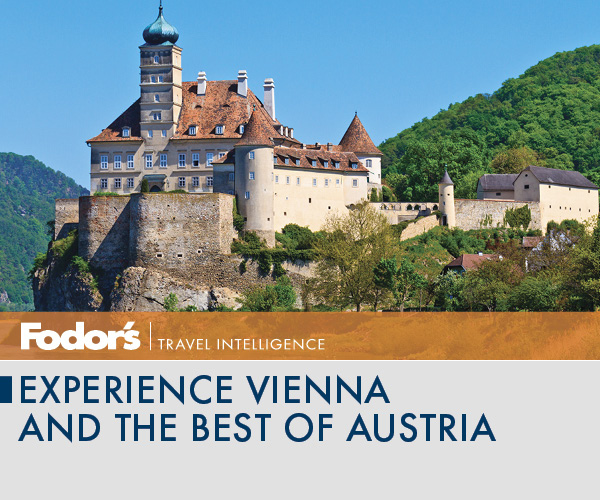
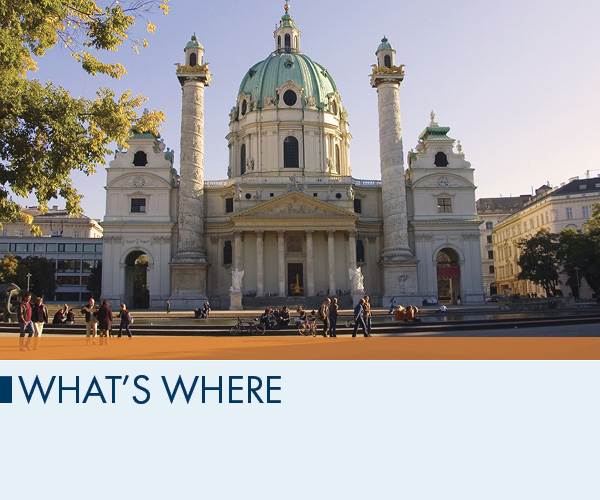
Vienna. Vienna mixes old-word charm with elements of a modern metropolis. The citys neighborhoods offer a journey thick with history and architecture, and the famous coffeehouses are havens for an age-old coffee-drinking ritual.
Vienna Woods and the Danube Valley. Vienna is surrounded with enticing options such as hiking in the Vienna Woods and exploring the nearby towns of Marchegg and Carnuntum. The famously blue Danube courses through Austria past medieval abbeys, fanciful Baroque monasteries, verdant pastures, and compact riverside villages. A convenient base is Linz, Austrias third-largest city, and probably its most underrated.
Salzburg. Salzburg is an elegant city with a rich musical heritage that also draws visitors for its museums and architecture, the Trapp family history, old-fashioned cafs, and glorious fountains.
The Eastern Alps. Farther south and into the Alps, panoramic little towns, spas, and an array of sports highlight this section of Austria. No road in Europe matches the Grossglockner High Alpine Highway, the most spectacular pass through the Alps.
Salzkammergut. The Salzkammergut stretches across three statesfrom Salzburg through Styria to Upper Austriaand includes Austrias Lake District. Hallstatt is touted as one of the worlds prettiest lakeside villages.
Carinthia and Graz. Carinthia is the countrys sunniest (and southernmost) province. Here youll find the Austrian Riviera, a blend of mountains, valleys, and placid blue-green lakes with lovely resorts, while Graz, the capital of Styria, is the countrys second-largest city.
Innsbruck, Tirol, and Vorarlberg. The Tirol is a region graced with cosmopolitan cities and monuments, but with the glorious Alps playing the stellar role, Nature steals every scene. Nearby, Vorarlbergs big draw is its powdery skiing regions.
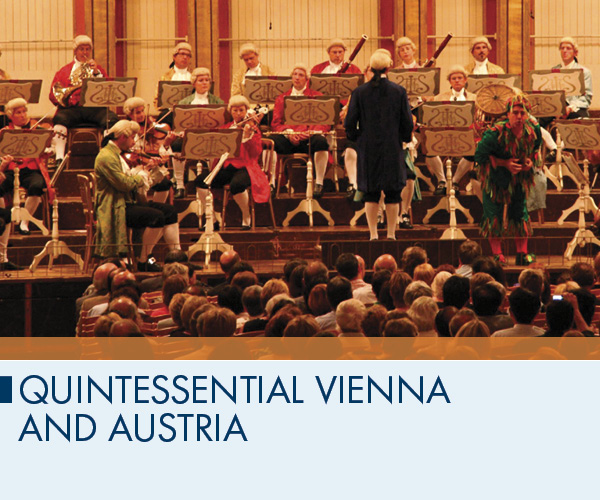
The Viennese Coffeehouse
Twice the Ottoman armies stood at the gates of Vienna (in the 16th and 17th centuries), and twice they were turned back after long, bitter sieges. Although the Turks never captured the city, they left a lasting legacy: the art of preparing and consuming coffee. Emotions about coffee tend to run high throughout Austria: ask anyone on the street where you can get a good cup of coffee or homemade Apfelstrudel, and youre likely to get a lengthy and passionate exposition on why you must try a certain coffeehouse. Many Austrians spend a good part of the day sitting over a single cup of coffee in their favorite coffeehouse while reading the newspaper, discussing business or politics, or just catching up on the local gossip. As any Austrian will tell you, many of the worlds great cultural moments had their genesis in coffeehouse discussions in Vienna. Youll hear about where Leo Trotsky regularly played chess while working out the subtleties of Communist theory (at Caf Central), where Gustav Klimt and Egon Schiele worked out their ideas for modern art (Caf Museum), and where Sigmund Freud spent Wednesday evenings laying the foundation for modern psychoanalytic theory (Kaffeehaus Korb). Although more and more generic Italian espresso bars and even Starbucks coffee shops (gasp!) are cropping up in urban areas, these fulfill another purpose entirely and cannot begin to compete with the role the traditional Viennese coffeehouse has in defining Austrian identity.
The Outdoors
Land der Berge, Land am Strome (Land of mountains, land on the river) is the first verse of the Austrian national anthem, and it sums up what Austrians treasure most about their country: the breathtaking and diverse landscapes. Austrians take every opportunity they can to get out and enjoy their natural surroundings. The mania for the outdoors transcends all age groups. Ten year olds, determined to follow in the footsteps of great Austrian skiers like Hermann Maier, will overtake you on the ski slope. And on a warm summer day when you finally reach that mountain hut in an Alpine meadow near the peak, out of breath after a five-hour hike, youll find a score of 70 year olds who beat you there, occupying the best spots and enjoying glasses of schnapps and beer on the sunny terrace.
Music
Austrians are serious about their music. Cities and towns vie to put their special venue or music festival in the limelight. Top of the bill is of course Vienna, with the Vienna State Opera and the Vienna Philharmonic Orchestra. But even the Viennese are prepared to make the seven-hour journey to Bregenz, where elaborate opera productions on a giant stage overlooking Lake Constance occur every summer. Summer evenings in the Alps can often be quite chilly and wet, but music-hungry Austrians will brave even a downpour, sitting on heavy blankets and wearing parkas. Other events, such as the annual Salzburg festival, provide the perfect backdrop for society-conscious Austrians who gather in their most opulent evening attire to admire each other (and to hear good music, too). Such spectacles, however, are more the exception than the rule. Many Viennese, dressed only in jeans and a pullover, will go several times a week to the opera. They wont pay the high price for a seat but instead pay a few euros for a spot in the standing room (where they know the acoustics are better anyway).
Next page


